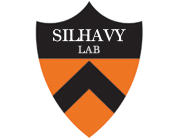Dissecting the Escherichia coli periplasmic chaperone network using differential proteomics
Type
β-Barrel proteins, or outer membrane proteins (OMPs), perform many essential functions in Gram-negative bacteria, but questions remain about the mechanism by which they are assembled into the outer membrane (OM). In Escherichia coli, β-barrels are escorted across the periplasm by chaperones, most notably SurA and Skp. However, the contributions of these two chaperones to the assembly of the OM proteome remained unclear. We used differential proteomics to determine how the elimination of Skp and SurA affects the assembly of many OMPs. We have shown that removal of Skp has no impact on the levels of the 63 identified OM proteins. However, depletion of SurA in the skp strain has a marked impact on the OM proteome, diminishing the levels of almost all β-barrel proteins. Our results are consistent with a model in which SurA plays a primary chaperone role in E. coli. Furthermore, they suggest that while no OMPs prefer the Skp chaperone pathway in wild-type cells, most can use Skp efficiently when SurA is absent. Our data, which provide a unique glimpse into the protein content of the nonviable surA skp mutant, clarify the roles of the periplasmic chaperones in E. coli.

